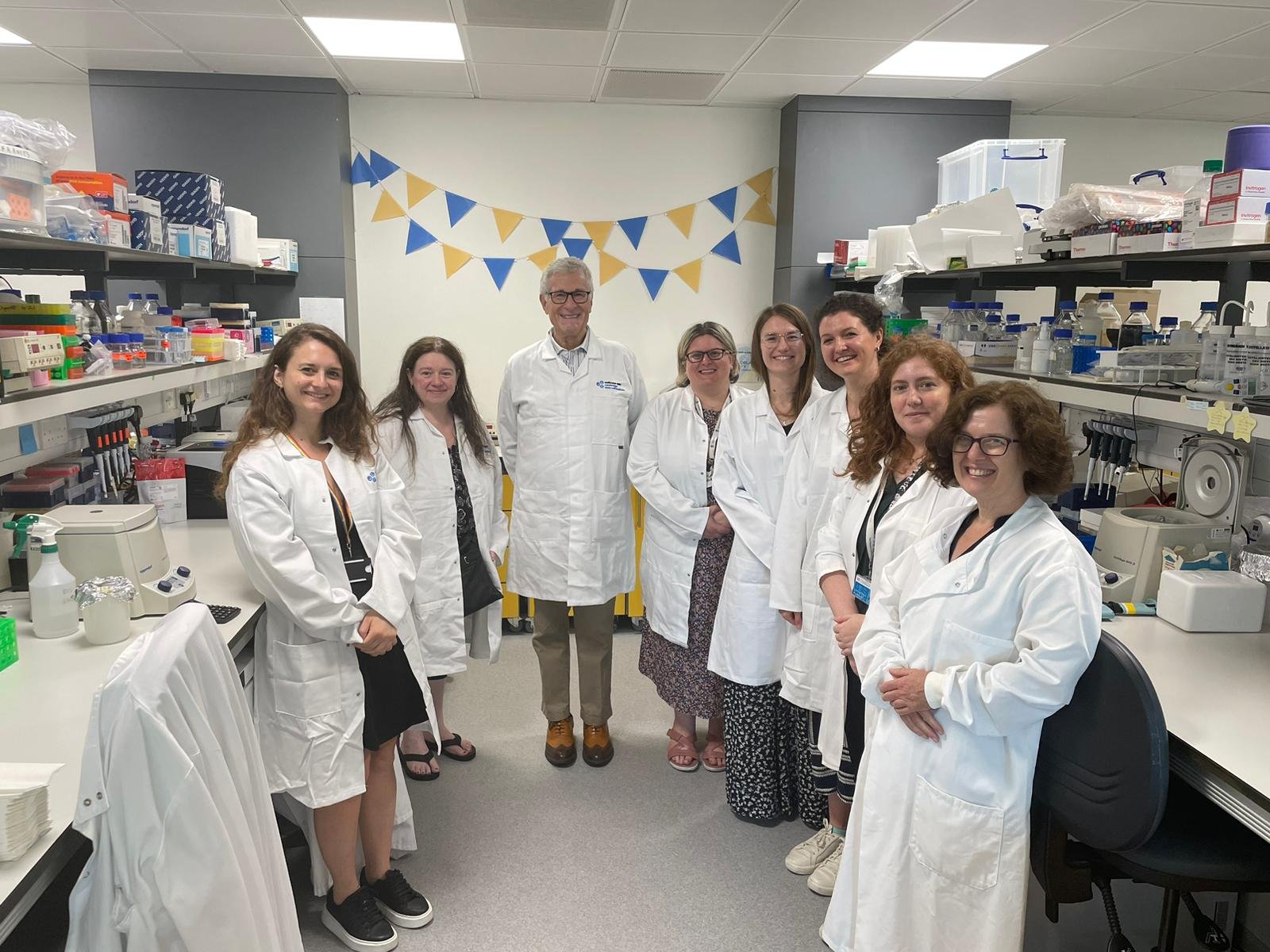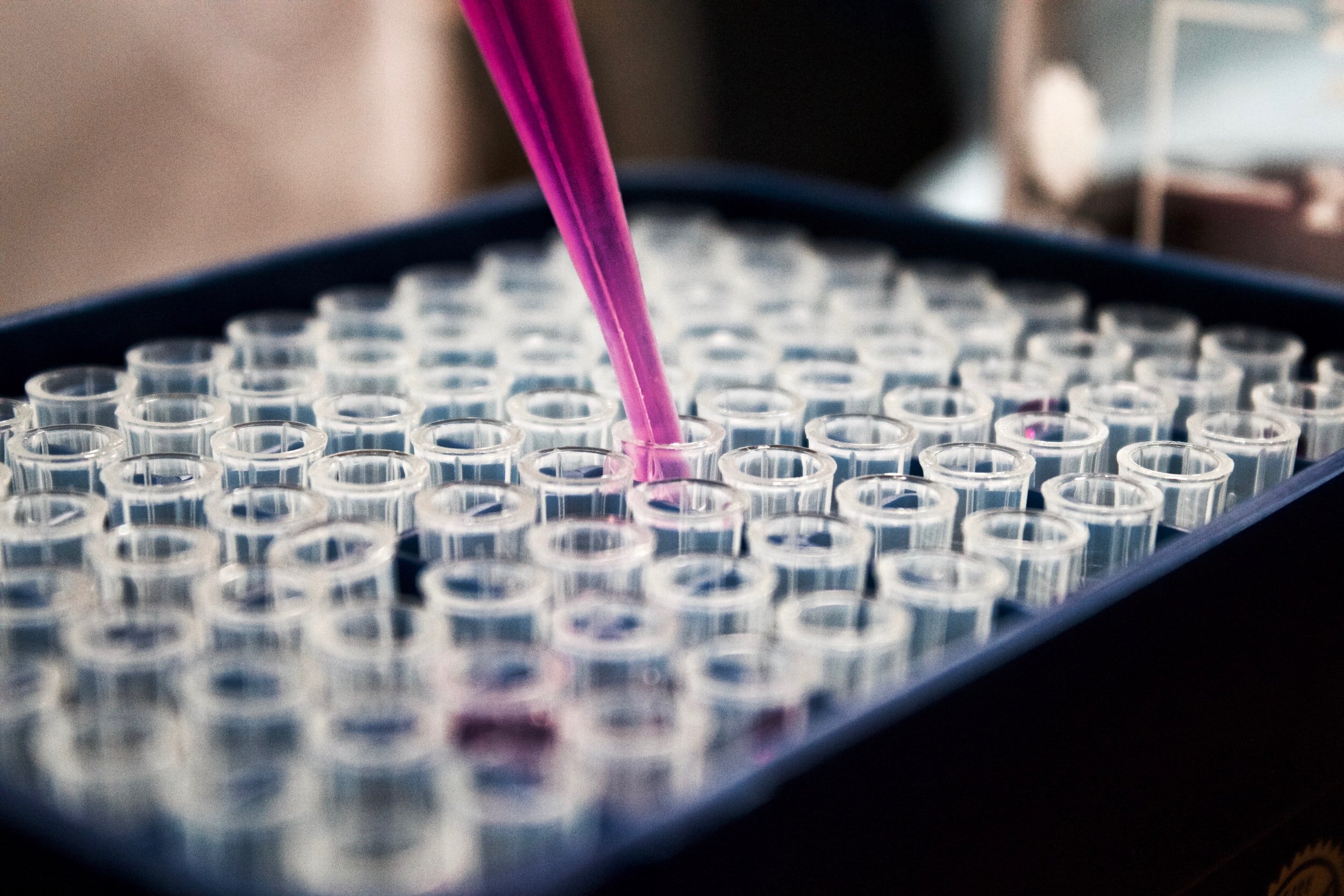Latest News, Grants & Research Reports
Read our latest news, blog posts and research updates right here

Celebrating neuroblastoma research
This Childhood Cancer Awareness Month, we joined the research team at the University of Cambridge to celebrate their vital research into neuroblastoma. Dr Kirsty Ferguson organised this fabulous opportunity for our team and supporters to visit the lab, and tells us more about the day.

Recognising researchers this International Women's Day
International Women's Day (8th March) is a global day celebrating the social, economic, cultural, and political achievements of women.
We celebrate the female scientists who work tirelessly to fight childhood cancer - we asked three of our funded researchers about what motivates them in their work to improve treatment for neuroblastoma.
Research Grants - a 2022 update
This year we reviewed the current results of the research initially funded by Neuroblastoma UK from 2010 to 2017. Our Symposiums over the last ten years have brought together researchers to share their work and highlight topics, examples are: new treatments, advances in differentiation therapy, genetic landscape of neuroblastoma , the role of MYC gene and micro RNA signatures.
Dr Jinhui Gao, a Research Fellow will be looking into, ‘Investigating the role of Enhancer of Zeste homolog 2 (EZH2) and Natural Killer cells in Neuroblastoma’.
Intensive chemotherapy used in the treatment for high-risk neuroblastoma does not cure all children and has significant side effects and long-term toxicity, so it is imperative that we continue to look for new treatments. One area is to improve the efficacy of immunotherapy. Anti-GD2 immunotherapy is now a mainstay in the therapy of neuroblastoma. Natural killer cells play a major role in the effectiveness of anti-GD2 immunotherapy and EZH2 alters the action of natural killer cells. This pilot study will investigate the benefit of combining EZH2 inhibitors and anti-GD2 immunotherapy.
Dr Rob Ewing, an Assoc Prof in Cancer Systems Biology will be assessing, ‘How does the Zika virus kill Neuroblastoma cells? A potential new oncolytic virotherapy for Neuroblastoma’.
Members of this team at Southampton discovered that the Zika virus can specifically infect and kill cells in childhood brain tumours, and it has shown some promise in the laboratory with aggressive neuroblastoma. The funded research will look into the appropriateness of using this virus to specifically infect and destroy cancer cells without destroying normal cells; an approach known as oncolytic virotherapy. These are attractive potential treatments for childhood cancers as they typically have low toxicity and are well tolerated.
Neuroblastoma UK statement about debate in House of Commons on childhood cancer outcomes
Neuroblastoma UK, a charity that funds research into neuroblastoma, a rare and often aggressive childhood cancer, welcomes the debate in the House of Commons today (26 April) on childhood cancer outcomes.
There is an urgent need for more research funding into childhood cancers, particularly neuroblastoma, to improve diagnosis, treatment and survival rates.

From molecules to medicine: new funding to accelerate rare childhood cancer research
Thanks to your kind donations, Neuroblastoma UK is pleased to announce two research grant awards totalling £683,477, with a focus on improving treatment for children with advanced stages of the disease.
The grants, which include a donation of £15,000 from charity Friends of Rosie, will enable scientists to progress their research and develop safer, non-invasive and more effective treatment for children with the disease.

Research Q&A with Professor Deb Tweddle
During Childhood Cancer Awareness Month 2021, we invited our supporters to share their neuroblastoma research questions with us.
Professor Deb Tweddle, Professor of Paediatric Oncology at Newcastle University and an Honorary Consultant in Paediatric and Adolescent Oncology at the Great North Children’s Hospital, Newcastle answers questions about research into neuroblastoma relapse, survival and treatment options.

A step towards better precision in treatment
A new international risk classification system has been developed for children with neuroblastoma in North America, with further revisions that could benefit children with the disease around the world.

Clinical trial for children with high-risk neuroblastoma open
We are delighted to share that the SIOPEN High-Risk Neuroblastoma 2 trial is now officially open and ready to recruit at its first UK hospital, with more to follow soon.
In May 2020, we announced the award of £609, 762 in partnership with Solving Kids Cancer to open the UK sites of the SIOPEN High-Risk Neuroblastoma 2 trial. This latest European-wide study will look to answer important questions about the standard care protocols for children with high-risk neuroblastoma, and how they might be improved.
